Esta entrevista foi publicada em 1997 em All About Romance.
O texto está em inglês.
Nora Roberts on her MacGregor Series
(September 22, 1997)
“I feel that a character’s flaws are what allow the reader to relate to them. I’m well-known for not being a fan of the ‘perfect’ heroine. Our admiration may be aroused by perfection, but that is a distant emotion. Empathy comes from a shared sense of humanity, and that’s what interests me.”
I’ve heard it said that nobody writes families better than Nora Roberts. I’m inclined to agree with them after having read most of her MacGregor series.
Awhile back I was lucky enough to snare a copy of Nora’s upcoming release, The MacGregor Brides, which is a full-length contemporary romance to be released by Silhouette very soon. Included in this book are three romances finagled by Daniel MacGregor, Scots scion and patriarch of a most delightful family. In this book, Daniel is an old man who meddles and match-makes for three of his granddaughters in a wonderful way. What especially appealed to me were those sections of Daniel’s journal detailing his schemes, and also the interactions between himself and his granddaughters wherein he blames his wife for his actions. It was heartwarming and pure comic delight.
I knew that this book was part of a series Nora had written more than a decade ago and that the earlier books are considered classics and impossible to come by. Readers will be thrilled to know that Silhouette does have plans to reissue the books, but I didn’t know that after having read The MacGregor Brides. So, how was I going to be able to get a hold of the earlier books? In a move reminiscent of Daniel, I decided to write an article, this article about the series. If I did that, Silhouette would have to provide me with the books. They did, and after having read them, I decided I loved Daniel and his family even more than I initially did.
Since reading the five contemporary MacGregor books, I’ve put the two historicals (Rebellion, Harlequin Historicals #4 and In from the Cold, Harlequin Historicals Christmas Stories 1990) on the back burner to glom some other contemporary Nora Roberts. I just finished the Born In trilogy. The first of the series, Born In Fire, has already become an all-time keeper, and I greatly enjoyed the other two as well. The Born In series takes place in modern Ireland in County Clare and is far different from the Scots humor found in the MacGregor series.
No doubt I would probably want to interview Nora on every series she’s written once I read them. But I’d much rather she write than answer every question I have, so I had to settle for asking her extensively about the MacGregor. I had some help in developing the questions, in the person of Linda Mowery. Linda of The Romance Reader thinks Nora is a goddess and offered me her first-born if I’d give her a sneak peek at The MacGregor Brides. Her favorite romance of all time is the third from the series, All the Possibilities.
–Laurie Likes Books with Linda Mowery
Laurie Likes Books: First of all, how are you? Have you been able to put this summer’s nasty episode with Janet Dailey behind you? Are you able to write? I know I read that you were unable to for several weeks.
No, I haven’t been able to put the plagiarism situation behind me because it’s not yet settled or resolved. Impossible to put it behind me until it is. I’m deeply saddened that I’ve had to file suit. I wish there was another way. I have gotten back to work. I have to work. I need to write to be happy. The situation remains a distraction and a burden, but for now, I have to work around that.
LLB: When MacGregor was but an idea in your head, what was the idea? Did you have 5 books mapped out then? Three? Four?
Actually, when I started Playing The Odds, it was planned as one book. Somewhere during the writing of it, I decided to write stories involving each of Serena’s brothers. I liked them so much. So that meant three books. Then I had an idea to connect Shelby’s brother, so that was four.
And I fell for Daniel. Big time. My editor had received so many letters on him, she asked me if I would be willing to write his and Anna’s story. She got a big yes!
Later, when I was asked to write an historical, doing the MacGregors and the ’45 in Scotland seemed like a natural. And again when I wrote a novella, for Harlequin Historicals, the MacGregors popped into my head.
LLB: The family trees you provide with your books, which is an excellent idea and I wish other authors would do that as well, was that your idea?
I wish I could take credit for the family trees in some of my books. It’s a wonderful idea, and it belongs to my fabulous editor at Silhouette, Isabel Swift.
LLB: Daniel is obviously what I fell in love with while reading The MacGregor Brides and why I wanted to read the rest of the series. I am a sucker for funny family relationships. How was Daniel born?
Daniel just came almost fully developed into my head. He’s a very powerful man. There’s a bit of my father in him, but for the most part he’s just Daniel. When a writer is lucky enough to have a character like Daniel insisting on being part of her work, she listens.
LLB: How many more books will there be after Brides?
I’ve written two full length Silhouettes featuring two more of Daniel’s grandchildren, and another three-in-one novella, The MacGregor Grooms, for next year. I imagine Daniel will insist I write stories for all his grandchildren before I’m done.
LLB: The MacGregor men are so superior to “real” men. I thought Alan was great, but Caine seemed a little too much in touch with his emotions. Convince me otherwise.
Aren’t most romance heros, or heros in fiction of any kind, generally superior to real men? Same goes for heroines and real women. They are idealized. That’s what makes them heros. As for Caine, I couldn’t possibly convince you one way or the other. He was written as he came to me, layer by layer. Certainly he had a leg up on understanding himself and his own feelings on some other characters simply because of his upbringing and family. When you come from a family who expresses their feelings, you generally recognize your own.
LLB: Will there be a story for the children of Grant and Genevieve from One Man’s Art even though they are not MacGregor’s?
Absolutely the Campbells will be included in the MacGregor books. They are honorary grandchildren after all. Cybill Campbell will be the first of that family spotlighted in a full length book, likely scheduled for ’98. Daniel would have it no other way.
LLB: Does Silhouette ever plan to reissue the first five books?
Silhouette does indeed plan to reissue the first five books, and possibly Rebellion as well. More than likely this will be done in three-in-one trade size editions as they did with The Calhoun Women. The reissue should be published near the release of The MacGregor Grooms.
LLB: Will the MacGregor grandsons fall so fast for their mates as the MacGregor sons did? Is that a MacGregor trait?
When you’re writing category, you don’t have a lot of time or a lot of room and the focus of the book is on the relationship. Everyone falls fast, not just MacGregors. Indeed yes, the Grooms will all fall pretty quickly for their women. And visa versa.
LLB: I’m afraid you’ve got to tell me more about the “hook” of Daniel. His Scots-ness, his meddling, and the way in which everyone loves him while being exasperated. Is he an all-time favorite character?
Daniel is Daniel. Very much a favorite. His determination, his stubbornness, certainly his meddling make him exasperating, and certainly larger than life. But he has, and always has had, a fierce and loving sense of family. Family always comes first. He meddles because he loves – and also because he’s so certain he knows best. Turns out, much to everyone else’s frustration, he does. He also has a great pride in his heritage. He’s a Scot, more a MacGregor Scot, and never forgets it. Never lets anyone forget it. He’s a wildly successful businessman who’s made a great deal of money. But money will always come down the list from family and roots.
LLB: The sense of family you imbue in your writing has turned me into a quick fan. You pulled me in as easily as the MacGregors pulled in Diana and Shelby (from books # two and three). Talk some more about that sense of family.
The sense of family simply is. What I write deals with relationships, with making families. It just follows that I would often write about family and what it means. Each of my characters comes from somewhere, and where they come from, good or bad, has a large part in forming who they are, and who they can become. When they fall in love, decide to marry, they’ll make a family of their own. My own sense of family, where I came from and what I made for myself is an important part of my life. The most important part. I suppose my writing reflects my own feelings on that.
LLB: Most authors I know struggle to produce one or two good books a year while you do several. I know I’ve asked you before how you keep it fresh and you talked about genre-jumping, but how do you do the sheer volume of pages?
I type fast. LOL. Well, that’s true enough, but I simply have a fast pace. It’s the way I work best. I generally write a first draft that’s pretty lean. Just get the story down. I don’t fiddle or edit or change while I’m going through that first draft. Then I go back to page one and start editing, changing, fixing, adding texture and color and fleshing out my people. I’ll do at least one more pass for polishing. And toward the end of a book, I put in a lot of hours. I can’t let go of it in that last sprint until it’s done. So add a touch of the obsessive to speed.
LLB: I noticed that, over the 12 years since you wrote the first books in the series, your writing style has obviously changed. How do you feel your writing is different since 1985?
I would hope that my writing’s cleaner than it was when I started. I hope I’ve gotten better at my job, which is telling a story well. Consciously, I don’t do anything different really. It’s just a matter of practice and experience, I’d think.
Linda Mowery: Some of your characters are very strong and seem as though they must be based on real people. When they aren’t main characters, how do you keep them from overshadowing others?
I don’t base any character on a real person, and really don’t do composites either. I make them up. This is part of the fun of writing fiction. I don’t have trouble keeping them from overshadowing because I know, and they know, this isn’t their story. They are just part of someone else’s story.
LM: The MacGregor series have the same characters in each book. You added Shelby and Grant in book three, plus Genny in book four. How difficult was it writing a family saga of this magnitude, including siblings and cousins?
Actually, I find it great fun to develop family series with lots of characters. Yeah, it’s work, and you have to make each one of them unique and special, but that’s just part of the job. The most important aspect of any story, to me, is character. And I enjoy creating them.
LM: Who’s your favorite MacGregor character? Who was the hardest to write about? The most fun?
Now, if I said I had a favorite, someone else’s feeling would be hurt. Or this is just about how strongly I feel about the people I create. They have to be real to me while I’m crafting the book, or they won’t be real, and therefore, important, to the reader. Every single character I write has some aspects of fun and some aspects of frustration in the crafting of them. I honestly can’t think of one character who’s been more fun, or more difficult, than any other to flesh out.
LM: You describe the MacGregor fortress in great detail. Shelby’s tour with Alan gave us lots of information about it and its owner. Where did all the detailed ideas come from?
Generally when I describe a home I build it the same what I do a character. Especially if that home is important to the story. I make it up, bit by bit. If I can’t figure out what something’s called or exactly what I want, I sometimes ask Bruce (my husband), who’s a carpenter and has designed and built lots of things. I do imagine some of the details come from something I’ve seen and stored away in my head somewhere.
LM: You’ve obviously researched clan history, to be able to include the feud between the MacGregors and the Campbells. In book three you even have Caine alluding to Daniel’s reverence for Rob Roy. Add McGee, who’s a Highlander. How difficult was the research? Did you actually travel to Scotland or just do research here? Since the MacGregors, you’ve written other stories set in Scotland and Ireland. Why this setting?
The Scot part of my heritage is MacGregor. So, . . . it wasn’t so hard to figure out. I’ve never been to Scotland – honestly you don’t have to go to a place to research and write about it. My parents have been, and loved it. I certainly got some information from them, but a lot is just through family conversations over the years. I’m Irish and Scot on both sides. I feel a strong kinship to the Celts, and I’m sure that’s why so many of my characters end up being of Celtic descent. BTW, my first book, was a Silhouette Romance titled Irish Thoroughbred. It wasn’t set in Ireland, but the heroine had come straight off the boat – so to speak – from Skibbereen.
Laurie Likes Books: Is there another “Daniel” on the horizon so that the MacGregors can continue after he’s gone?
I haven’t thought far enough ahead to think of a time Daniel would be gone. I don’t think there could ever be another Daniel MacGregor.
LLB: Did you know when you write the series back in 1985 that it would become such a favorite?
No, I never actually think about that sort of thing anyway. I just think about the story.
LLB: If you had to define the MacGregor “magic”, how would you define it? I don’t mean why the books sold so well, but the personality of the modern-day clan you’ve written about?
I’d have to say strong family ties. The fact that though each of the characters has a life of his or her own, the family roots are dug deep. These people care about what happens to each other.
*******

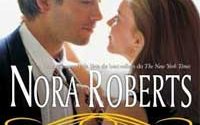
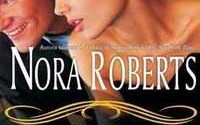

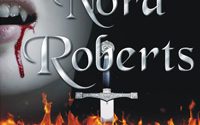
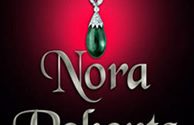

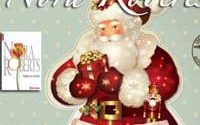
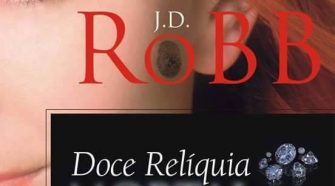
Sem comentários